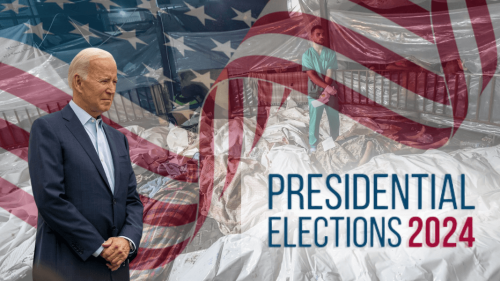Labels and Suspicion
Despite President Bush's admonitions not to single out Arabs and Muslims in the wake of September 11, this type of targeting continues to occur. When the Census Bureau recently published its report estimating the number of immigrants who are out of status, some anti-immigrant groups and several newspapers saw fit to focus attention on those from the Middle East despite the fact that they were less than 1 percent of the overall total.
The Center for Immigration Studies made news this week when it used the Census report to promote fear about illegal immigrants and national security. The CIS is convinced that failures in immigration control contributed to the terrorist attacks of September 11.
We disagree. One could argue that better intelligence could have thwarted the hijackers' plan, or better security in the aircraft, but the criminals of September 11 had a systematic and deliberate plan that took advantage of our system. That does not mean the system is broken.
To confuse the need to prevent terrorist acts with the challenge of limiting illegal immigration is a conflation of the worst sort. It is also bad policy. The tools needed to fight terrorism are many. For those tools to work, they must be focused on those who pose a real threat, not on all persons in or wishing to come to the United States from the same country or religious faith as a handful of extremists.
The overwhelming majority of people, who come to America, whether from the Middle East, Europe, Asia or Latin America, are looking for a better life and future, not to terrorize the population. And contrary to the CIS assertion that "the terrorist threat comes almost exclusively from foreign-born individuals," terrorists have and will continue to come in all colors and nationalities, including homegrown ones like Timothy McVeigh.
The CIS claims "we cannot protect ourselves from terrorism without dealing with illegal immigration." But the numbers in the Census report tell us simply that millions of persons are living in the United States are either out of status or on some form of transitional status, like refugees, asylees and those with applications pending. We agree that our immigration laws must be enforced and that resources are needed to do that, but the message sent by CIS is taking advantage of a tragedy to further their pre-September 11 anti-immigrant agenda.
Another misconception is that the Census Bureau report was motivated by the same anti-immigrant agenda as espoused by the CIS. The report itself was part of an effort by the bureau to address estimates of the "residual foreign born" for purposes of apportionment. Because the report released data on country of origin, the CIS seized the opportunity to draw attention to the small percentage (less than 1 percent) of this estimated population that originates in the Middle East. Statistically, this is hardly newsworthy.
But in the current climate, it is dangerously easy to use racism and fear-mongering to make policy recommendations. Such policies are neither sound nor will they benefit the legitimate efforts of law enforcement to prevent future acts of terrorism. Investigators of the September 11 attacks acknowledge that the pool of actual suspects is extremely small. The overwhelming majority of persons detained (and being prioritized for deportation) have no connection with the terrorists who attacked our country. While those who violate their visas (from any country) need to be dealt with, diverting valuable FBI resources from the criminal investigation for otherwise procedural INS business does not make sense, and it will not help prevent terrorism.
By conflating visa violators with terrorist suspects and failing to distinguish between the two have created the impression that they may be one and the same. What is especially troubling is that after the early weeks of telling Americans that they should not treat all Arabs and Muslims as suspects, the administration's practices of profiling and massive detentions are sending the exact opposite message.
The politics of terrorism have only reinforced decades of negative stereotypes in American culture about Arabs and Muslims. Policies of profiling based on Middle Eastern ethnicity rather than on suspicious conduct only deepen those popular misconceptions and widen the fear.
Responsible policies distinguish between stereotypes and real threats. We agree with the urgency of strengthening our security to prevent future terrorism, regardless of where it originates. To focus that spotlight on immigration policy is a dead end.
Helen Hatab Samhan is executive director of the Arab American Institute Foundation.
Topics: Immigration, Latin America, Terrorism, Timothy Mcveigh, United States Of America
Views: 1277
Related Suggestions

















